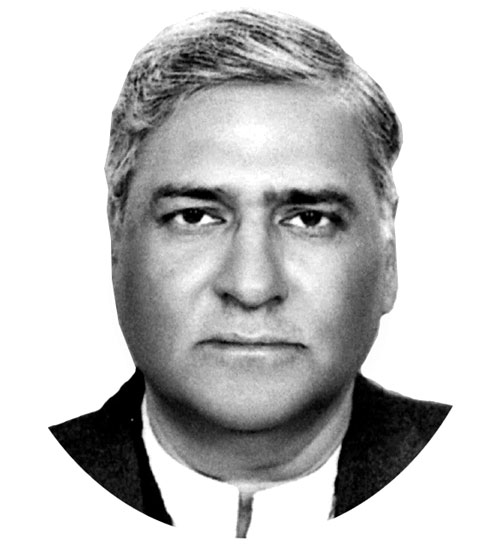PTI Government: Blessing or damnation?
SINCE coming into power Prime Minister Imran Khan is facing one crisis after another. However, at present his government is passing through the most difficult phase due to high inflation and unprecedented commodity prices that have provided a golden opportunity to his opponents to launch a strong campaign against him.
The government looks visibly on back foot and also unable to defend it effectively, a real dampener for its voters and supporters.
The above situation has developed mainly due to a global increase in demand after a drop down in corona pandemic.
The international prices of essential food commodities like edible oil, wheat, sugar, rice and maize etc are now at an all-time high.
Despite being an agricultural country Pakistan imports about 80% of its edible oil requirements where international prices have increased by almost 100% in the last couple of months.
This year the country was also forced to import a huge quantity of sugar, wheat and pulses that pushed its import bill on account of food items to $ 8.347 billion, a 53% increase over last year.
Many of the experts fully believe that wheat and sugar stocks were in fact sufficient to meet local demand but it was the smuggling factor that led to heavy imports. This truly was poor governance where the government cannot be exonerated.
This situation has become even more vulnerable due to an abnormal increase in crude oil and LNG prices internationally.
This along with maturing debt repayments has exerted heavy pressure on exchange reserves that has resulted in exchange rate volatility and PKR losing about 12% of its value in the last three months.
Worst cum worst was an altogether changed geo-political situation of the region where flight of dollars to Afghanistan has intensified. As a consequence the country is facing high inflation and price hikes.
The government is under heavy bashing from opposition, pseudo economists and a section of highly vociferous media spitting venom 24/7.
Unfortunately our media has forgotten the fact that one of its main responsibilities is to educate people rather to incite them. The saner segments of the society firmly believe that our media has made the people hostile and restless that has destroyed our social fabric and values.
The government inherited a steroid economy with almost no foreign exchange reserves and a huge current account deficit (CAD) of over $ 19 billion.
The inept and corrupt government of PMLN had made the country vulnerable and almost ungovernable by spending billions of dollars on highly unproductive projects like orange line train, metros and highways.
Unfortunately these non-yielding projects were financed through external borrowings without creating export surplus.
During PMLN last term exports on the average hovered around $ 22 Billion where import bill by the time it was voted out had surged to $ 64 billion.
The above borrowings are now maturing for repayment but in the absence of any export surplus and to pay them the government is forced to either seek fresh borrowings or beg for moratorium.
PM Khan in a stop gap arrangement also mobilized funds from friendly countries like KSA, UAE and China.
The opponents instead of being ashamed of their past performance are alleging Imran Khan for pursuing flawed economic policies and taking U-turns from its election commitments. A large section of media is providing them enough coverage to misguide and incite the people against the government.
It is true that this coalition government of PTI is weak and fragile since it is holding a very thin majority in Parliament.
This has become a major impediment for new legislation, a must requirement to deliver on the high rather revolutionary promises made during electioneering.
The government is also under fire on governance issues where micro- management in the absence of a robust local bodies system as promised in its manifesto has become a major drawback.
However, despite above heavy odds, the government has performed exceedingly well on many fronts.
First of all it dealt with the CAD issue quite successfully but was blamed for slowing down the economy; an argument which is cruel and baseless.
The government, after much reluctance that should have been avoided to strike a deal with the IMF in 2019.
Thereafter it successfully floated dollar and euro bonds in the international market and avoided a looming default.
Agricultural sector after years of neglect received due attention in the last two years. This year cotton production is expected to be around 9.7M bales which are 3M more than the last year production of 5.7M.
The country on the back of a bumper sugarcane crop is expecting production of 6.5MMT of sugar this year that will not only make the country self-sufficient but also create a much needed surplus to oversee any eventuality.
With no further import of sugar and wheat this year exchange reserves are likely to improve and also reduce food inflation.
The government’s efforts during the pandemic drew appreciation from all over the world. PM Khan despite stiff resistance did not impose complete lockdown and let the industry work smoothly.
The government ensured uninterrupted power and gas supply to textiles and other export-oriented industries at subsidised rates and export refunds were also made promptly to improve liquidity.
The SBP provided instant relief to the industry through aggressive interest rate cuts, allowed interest free financing for six-month salary payments to corporate and private businesses with the condition that no employee will be laid off in Covid, an initiative that saved hundreds and thousands of workers going jobless, TERF and LTTF facilities were introduced to support BMR and setting up of new industrial units where loans worth Rs. 500 billion were sanctioned till 31st March 2021. —To be continued.
— The writer is Independent Financial Analyst, former Regional Chief of Operations — HBL.










